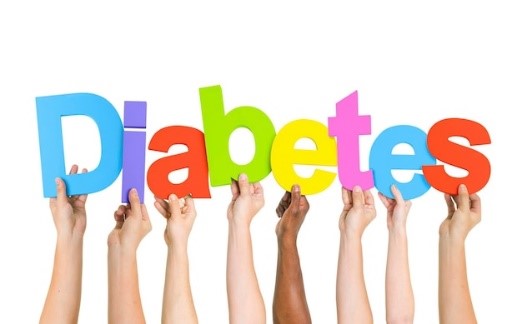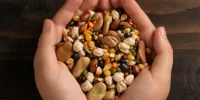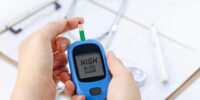Prediabetes

What is Prediabetes?
In prediabetes, the body is not able to use insulin effectively, leading to high levels of glucose (sugar) in the blood.
Overview
Prediabetes is often a precursor to type 2 diabetes, which is a chronic condition in which the body is unable to produce or use insulin effectively. However, with lifestyle changes, such as losing weight, increasing physical activity, and adopting a healthy diet, prediabetes can often be reversed, and the risk of developing type 2 diabetes can be significantly reduced.
What are the complications that Prediabetes will lead to?
Without treatment, prediabetes can become type 2 diabetes or cause other serious problems including:
-
Kidney Disease
-
Blindness
-
High Blood Pressure
-
Nerve Problems (Peripheral Neuropathy)
-
Loss of a Limb (Amputation)
Signs & Symptoms
If you experience symptoms, you may observe that:
You’re a lot thirstier than usual
Frequent Urination
Blurry Vision
Tiredness
Prediabetes Causes and Risk Factors
You’re more likely to get prediabetes if you:
- Are older, especially over age 45
- Have a waist that is greater than 40 inches in circumference for men and 35 inches in circumference for women
- Consume a lot of red and processed meat, sugary drinks, and little to no fruit, vegetables, nuts, whole grains, or extra virgin olive oil
- Have excess weight, especially in your midsection (belly fat), making you overweight or obese
- Have high cholesterol, high triglycerides, low HDL cholesterol, and high LDL cholesterol
- No physical activity
- Experienced gestational diabetes before or gave birth to a baby who weighed more than 9 pounds.
- Have polycystic ovary syndrome
- Have a sleep problem, like sleep apnea, or work changing shifts or night shifts
How to prevent Prediabetes?
Exercising and eating foods low in carbohydrates, sugars, fats, and salt can also help prevent prediabetes. Other tips include:
- Don’t smoke.
- Don’t have more than one alcoholic drink a day.
- Take blood sugar medications as your doctor prescribes.
Tests and Diagnosis for Prediabetes
Fasting of 8 hours is required, to take your blood to test sugar levels.
The results are following:
- If your blood sugar is less than 100 mg/dL, it is considered to be normal
- If your blood sugar is between 100 and 125 mg/dL, you may have prediabetes
- If it is 126 mg/dL or higher, you may have diabetes
You will first have a fasting plasma glucose test. Then sip on something sweet. After 2 hours more blood will be drawn for further test
The results are:
- Normal if your blood sugar after the second test is less than 140 mg/dL
- Prediabetes if your blood sugar after the second test ranges from 140 to 199 mg/dL
- Diabetes if your blood sugar after the second test is 200 mg/dL or above
Your average blood sugar levels for the previous two to three months are revealed by this blood test. Diabetes patients are given it by doctors to check on how well their blood sugar levels are managed. It can also be used to identify diabetes or prediabetes.
The results are:
- Normal if it’s 5.6% or less
- Prediabetes if it’s 5.7 to 6.4%
- Diabetes if it’s 6.5% or above
Children and Prediabetes Testing
Doctors diagnose prediabetes based on the same blood sugar levels, no matter the person’s age. According to the American Diabetes Association Children who are 10 or older and are overweight or obese, should be checked including the following:
- A family member with type 2 diabetes
- A mother who had gestational diabetes while pregnant with the child
Signs of insulin resistance or conditions linked to it, such as a low birth weight, high blood pressure, or polycystic ovary syndrome
If a child who has a high chance of getting prediabetes has normal test results, the American Diabetes Association advises testing them again at least every 3 years.
Health Blogs
The Benefits of Early Dinners: A Blend of Tradition and Science
The Benefits of Early Dinners: A Blend of Tradition and Science The Benefits of Early Dinners: A Blend of Tradition and Science In today’s fast-paced world, meal timing often
Kitchen Cures: Healing the Natural Way with Grandma’s Wisdom
Kitchen Cures: Healing the Natural Way with Grandma’s Wisdom Kitchen Cures: Healing the Natural Way with Grandma’s Wisdom Who doesn’t love quick, easy solutions to nagging he
Why Eating Nuts Before Meals is a Smart Choice
Why Eating Nuts Before Meals is a Smart Choice Why Eating Nuts Before Meals is a Smart Choice Adding a handful of nuts to the diet, especially before meals, can provide several hea
The Surprising Secret to Coffee’s Heart-Healthy Benefits: It is All About Timing
The Surprising Secret to Coffee’s Heart-Healthy Benefits: It is All About Timing The Surprising Secret to Coffee’s Heart-Healthy Benefits: It is All About Timing For many, the
5 Simple Morning Habits for a Healthier Start to the Year
5 Simple Morning Habits for a Healthier Start to the Year 5 Simple Morning Habits for a Healthier Start to the Year A new year offers a fresh opportunity to embrace healthier habit
Type 2 Diabetes and Mental Health: The Connection
Type 2 Diabetes and Mental Health: The Connection Type 2 Diabetes and Mental Health: The Connection Type 2 diabetes mellitus (T2DM) is a chronic condition affecting millions worldw
Is Sugar Really the Enemy? Unpacking Diabetes Myths
Is Sugar Really the Enemy? Unpacking Diabetes Myths Is Sugar Really the Enemy? Unpacking Diabetes Myths Diabetes is a growing public health concern worldwide, with type 2 diabetes
Tailoring the Dose of Exercise for Effective Glycemic Management in Type 2 Diabetes
Tailoring the Dose of Exercise for Effective Glycemic Management in Type 2 Diabetes Tailoring the Dose of Exercise for Effective Glycemic Management in Type 2 Diabetes Type 2 diabe
Ganesh Chaturthi and Diabetes: A Balancing Act
Ganesh Chaturthi and Diabetes: A Balancing Act Ganesh Chaturthi and Diabetes: A Balancing Act Ganesh Chaturthi, a vibrant and beloved Indian festival celebrated with great enthusia
Asthma in Children: Symptoms, Triggers, and Management
Asthma in Children: Symptoms, Triggers, and Management Asthma in Children: Symptoms, Triggers, and Management Asthma is a significant health concern among children in India, with i
Heart-Healthy Diet: Foods to Include and Avoid
Heart-Healthy Diet: Foods to Include and Avoid Heart-Healthy Diet: Foods to Include and Avoid India’s traditional diet is often heavy on carbohydrates, high-fat dairy product
Can I Donate Blood if I’m Diabetic?
Can I Donate Blood if I’m Diabetic? Can I Donate Blood if I’m Diabetic? If you’re diabetic, you may wonder whether you can donate blood. The good news is that inmany
Top Foods for Managing High Blood Pressure
Top Foods for Managing High Blood Pressure Top Foods for Managing High Blood Pressure High blood pressure is a common condition that affects millions of people worldwide. If left u
Loneliness and Diabetes: How Social Isolation Raises Your Risk
Loneliness and Diabetes: How Social Isolation Raises Your Risk Loneliness is a mental health problem that has been proven to have a significant impact on quality of life and health
Navigating Winter with Asthma in India: Tips for a Breath-Friendly Season
Navigating Winter with Asthma in India: Tips for a Breath-Friendly Season As winter sets in across India, individuals with asthma face unique challenges in managing their respirato
What is the optimal level of low-density lipoprotein (LDL) cholesterol for individuals living with heart disease?
What is the optimal level of low-density lipoprotein (LDL) cholesterol for individuals living with heart disease? LDL is considered as “bad” cholesterol as it accumulates in th
Diwali Delights: Navigating Healthy Celebration with 10 Essential Tips
Diwali Delights: Navigating Healthy Celebration with 10 Essential Tips Diwali, the festival of lights, is a time of joy, togetherness, and of course, indulgence in delicious sweets
Coping with COPD: Tips for Living Well with Chronic Obstructive Pulmonary Disease
Coping with COPD: Tips for Living Well with Chronic Obstructive Pulmonary Disease Chronic Obstructive Pulmonary Disease (COPD) is a chronic respiratory condition that can significa
How to live a healthy life after cancer?
How to live a healthy life after cancer? Cancer is definitely a debilitating disease that compromises our life’s quality and length of survival.The experience with cancer is uniq
Managing Glucose and Stress in Women with Type 2 Diabetes
Managing Glucose and Stress in Women with Type 2 Diabetes: The Power of Aerobic Exercise and Deep Breathing Diabetes is a type of metabolic disease. It has a strong connection with
Safe and Effective Exercises for Asthma Management
Safe and Effective Exercises for Asthma Management Safe and Effective Exercises for Asthma Management Asthma is a chronic lung condition that affects the airways, making it difficu






















